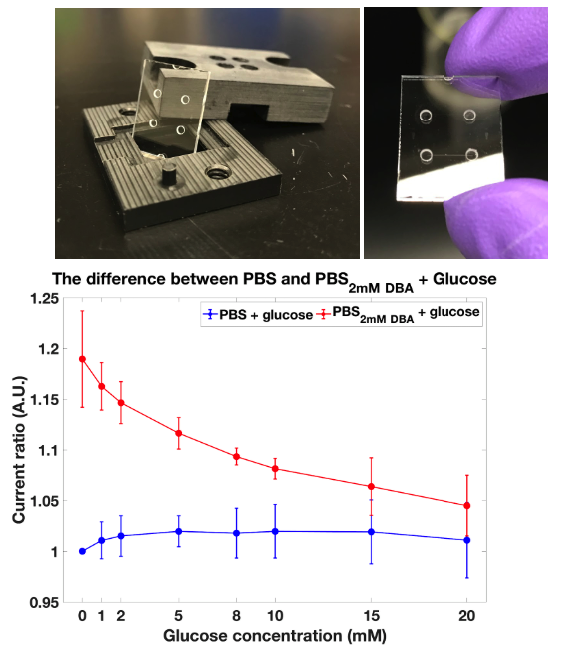
Leveraging the non-enzymatic sensors that have been developed in our lab for optical glucose sensing, we are developing similar non-enzymatic sensors based off electrical conductivity measurements in solution, for eventual applications in wearable and implantable glucose monitors. Specifically, we have synthesized new molecules which bind glucose and change charge at neutral pH. Thus conductivity in the solution can be changed once the molecules bind with glucose. Importantly, the reaction is reversible, and depends on the pKa of the molecules. In this way, the various concentrations of bound glucose and the resultant current at a fixed voltage can be established. In order to enhance the accuracy of sensing, a bipolar membrane is employed to filter the ions, which only allow the glucose to pass through. With our research focus building a wearable glucose sensor, the studies are including biology, mircro/nanofluidics, and fabrication technology for MEMS.
Reference:
[1] Wu, X., Li, Z., Chen, X. X., Fossey, J. S., James, T. D., & Jiang, Y. B. (2013). Selective sensing of saccharides using simple boronic acids and their aggregates. Chemical Society Reviews, 42(20), 8032-8048.